Mozart and Henry Ford may seem like an unlikely pair, but they share a fascinating connection through their involvement with Freemasonry in Vienna. Both figures were deeply influenced by the principles and traditions of this enigmatic organization, which shaped their personal philosophies and creative outputs in profound ways. From Mozart’s Masonic-themed compositions to Ford’s high-ranking Masonic affiliations, the impact of this secretive society on these two influential individuals is undeniable. Delving into their Masonic ties reveals a captivating intersection of art, industry, and the enduring legacy of this mysterious fraternal order.
Key Points
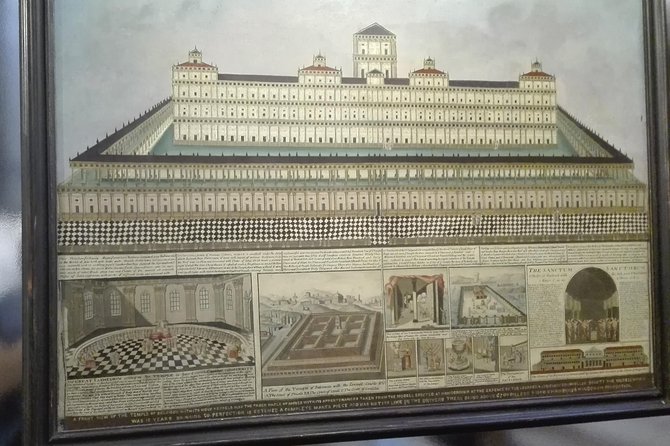
- Both Mozart and Henry Ford were active members of the Freemason movement, which had a significant presence in Vienna during their lifetimes.
- The Masonic connections influenced their personal and professional relationships, and played a role in shaping their creative output and business philosophies.
- Vienna was recognized as a center of Freemasonry, with numerous lodges and influential members throughout history, including figures like Mozart.
- Masonic symbolism and themes are present in Vienna’s architecture, monuments, and cultural institutions, reflecting the enduring legacy of the Masonic tradition.
- The Freemason movement in Austria, especially in Vienna, has a rich history, with periods of growth and suppression, but its influence is still felt in modern times.
The Freemason Conspiracy
The Freemason Conspiracy has long been a subject of fascination and speculation. According to some, the Freemasons were a powerful secret society that wielded significant influence over world events. Rumors circulated that they were involved in everything from political assassinations to the occult.
While the truth about the Freemasons’ activities remains shrouded in mystery, what’s clear is that their presence in Vienna was substantial during the time of Mozart and Henry Ford.
Some believe the Freemasons may have played a role in shaping the careers and legacies of these two influential figures. However, the extent of their involvement, if any, continues to be a subject of much debate and conjecture.
You can also read our reviews of more tours and experiences in Vienna.
Vienna’s Masonic Connections
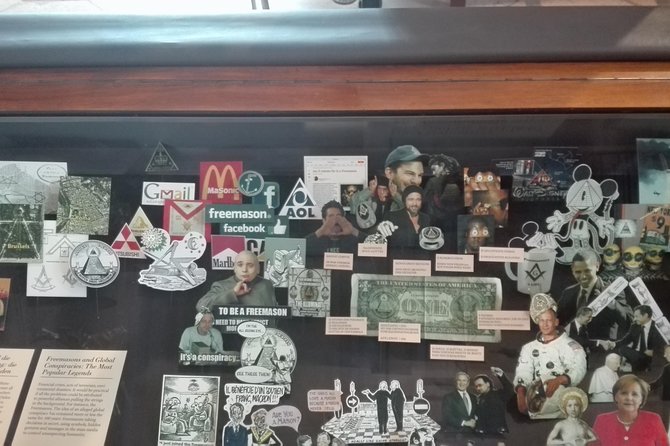
Vienna’s rich heritage as a center of Freemasonry is a fascinating aspect of the city’s history. The city has long been a hub for Masonic activity, with numerous lodges and influential members throughout its past.
Many notable figures, including composers like Mozart, were active within the Viennese Masonic community.
Today, visitors can explore the city’s Masonic connections by visiting historic lodges and landmarks.
While the modern role of Freemasonry in Vienna may be less prominent, its impact on the city’s cultural and intellectual development remains an intriguing part of Vienna’s story.
Mozart’s Masonic Involvement
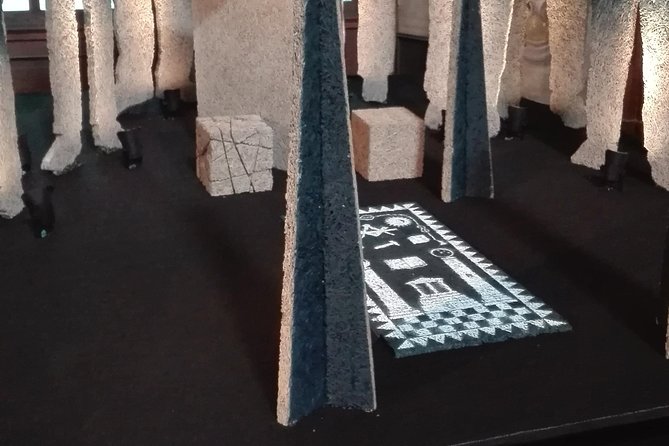
Wolfgang Amadeus Mozart, the renowned 18th-century composer, was deeply involved in the Masonic community of Vienna.
As a member of the Freemasons, Mozart incorporated Masonic themes and symbols into his compositions, including the opera "The Magic Flute."
His Masonic connections also influenced his personal and professional relationships.
Mozart’s association with the Freemasons wasn’t unusual for the time, as the organization was popular among Vienna’s intellectual and artistic elite.
While the extent of Mozart’s involvement is debated, his Masonic ties undoubtedly shaped his creative output and left a lasting mark on his legacy as one of the greatest composers in history.
Henry Ford’s Masonic Ties
By the early 20th century, Henry Ford, the pioneering American industrialist, had forged strong ties with the Masonic order.
Ford was an avid freemason, rising to the highest ranks of the organization. He played a prominent role in the Detroit Masonic Temple, one of the largest Masonic buildings in the world.
Ford’s Masonic affiliation aligned with his religious views and business philosophy, which emphasized moral virtue, charity, and a strong work ethic.
While some have speculated about the Masons’ influence on Ford’s decisions, historical evidence suggests his Masonic ties were more personal than professional.
Nevertheless, Ford’s Masonic involvement was a defining aspect of his life and legacy.
Exploring Masonic Traditions
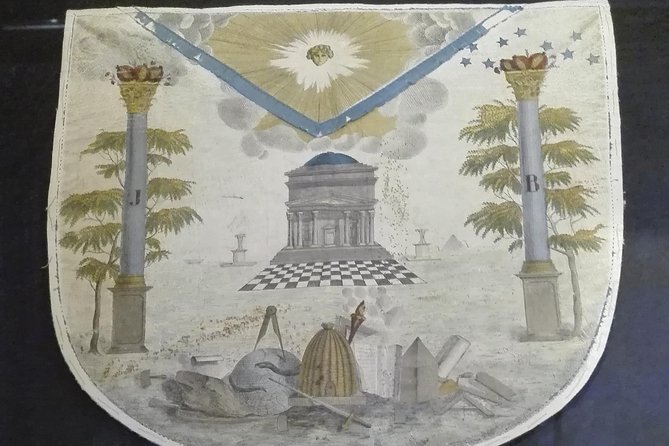
The Masonic order has long been shrouded in mystery and intrigue, captivating the public imagination. Exploring the rich Masonic traditions reveals a complex system of rituals, symbolism, and moral teachings that have influenced Western culture for centuries. At the heart of Freemasonry lies a focus on self-improvement, charitable works, and the pursuit of universal truths.
| Masonic Traditions | Description |
|---|---|
| Rituals | Elaborate ceremonies that impart moral lessons and initiate new members. |
| Symbolism | Imagery and objects, like the square and compass, that represent Masonic principles. |
| Degrees | Hierarchical levels of membership, each with its own specialized knowledge. |
| Charitable Efforts | Supporting causes like education, healthcare, and disaster relief. |
The Masonic order continues to captivate, its enduring traditions interwoven with the lives of influential figures like Mozart and Henry Ford.
- Vienna Classical Concert at St. Peter’s Church
- Highlights of Vienna City Center Walking Tour
- Time Travel-Magic Vienna History Tour Ticket
- Vienna: Skip the Line Schönbrunn Palace and Gardens Guided Tour
- Concert in St. Annes Church Vienna: Mozart, Beethoven, Haydn and Schubert
- Viennas Highlights: Food, Coffee and Market Walking Experience
The Vienna Masonic Lodge
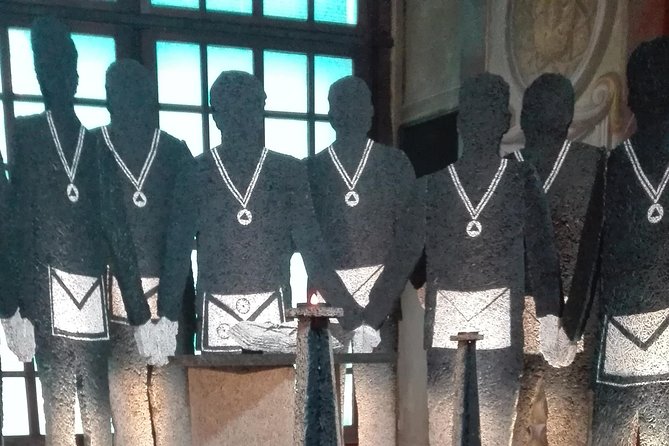
Nestled in the heart of Vienna, the Vienna Masonic Lodge stands as a testament to the enduring influence of Freemasonry on the city’s cultural and intellectual landscape.
This historic institution has been a hub for Masonic activities since its hotel, drawing in prominent figures from the arts, sciences, and politics.
The lodge’s ornate interiors and ceremonial rituals have long captivated visitors, offering a glimpse into the secretive world of Freemasonry.
Today, the lodge continues to play a vital role in Vienna’s social and cultural fabric, hosting events and gatherings that bring together members from all walks of life.
Its legacy remains an integral part of the city’s rich history and enduring traditions.
Uncovering Masonic Influences
One of the most intriguing aspects of Vienna’s cultural heritage is the pervasive influence of Freemasonry. This secretive society left its mark on many of the city’s landmarks and institutions, from its grand architecture to its musical traditions.
Uncovering these Masonic influences offers a unique glimpse into the city’s past:
- The mysterious Masonic symbolism adorning buildings and monuments
- The role of Freemasonry in shaping the careers of renowned figures like Mozart
- The hidden meeting places and rituals that took place behind closed doors
- The political and social impact of the Masonic order in Vienna’s history
- The enduring legacy of Freemasonry’s ideals of enlightenment, brotherhood, and self-improvement
Masonry and Austrian History
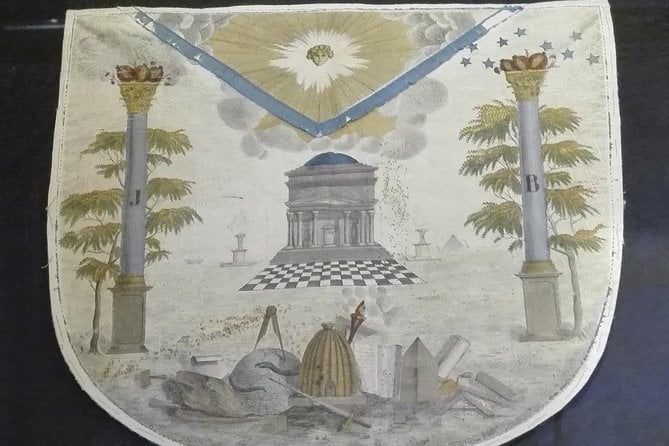
Masonry’s influence in Austria has been deeply intertwined with the country’s history.
The Freemason movement found fertile ground in Vienna, attracting influential figures like Mozart who was an active member. Lodges flourished, serving as hubs for intellectuals, artists, and political leaders.
While Masonry faced periods of suppression, it remained a significant force, shaping cultural and social discourse.
Today, Austrian Freemasonry continues to play a role, though its impact is less pronounced.
Understanding this historical legacy provides insight into Vienna’s rich tapestry, where the echoes of Masonic ideals have reverberated through the centuries.
Recap
Mozart and Henry Ford’s shared involvement with Freemasonry underscores the profound impact the organization had on influential figures across eras and industries. Both individuals embraced Masonic principles, which shaped their personal philosophies and creative outputs. Their legacies demonstrate the enduring legacy of Freemasonry and its ability to transcend time and place, influencing the lives and works of cultural and industrial pioneers.
More Tour Reviews in Vienna
Not for you? Here's more things to do in Vienna we have recnetly reviewed
- 3 Best Craft Beer Tours And Tastings In Vienna
- 18 Best Christmas Experiences In Vienna
- 25 Best Cruises And Boat Tours In Vienna
- 22 Best Food Tours In Vienna
- 9 Best Full-Day Tours In Vienna
- 5 Best Coffee Tours And Tastings In Vienna
- 12 Best Lunch Experiences In Vienna
- 13 Best Photography Experiences In Vienna
- 21 Best Dining Experiences In Vienna
- 20 Best Dinner Tours In Vienna
- Vienna as Never Seen Before: Hidden Courtyards, Legends and Symbols
- Private Day Trip to Bratislava From Vienna
